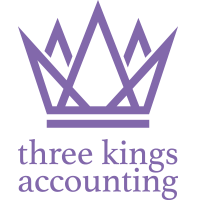Brexit Accounting Implications
Following the previous year’s Leave victory, the UK Government officially started the Brexit process on March 29, 2017. With intentions to formally leave the EU within two years, businesses and traders must prepare for the inevitable tax law changes. They will additionally need to accept the Brexit accounting implications it will have on company accounts.
Brexit will affect all aspects of taxation, including Personal Tax, Corporate Tax, VAT and Stamp Duty Tax. Here’s what everyone who could be influenced by these factors should know.
Short-Term Tax Implications
Article 50 means that the UK will cease to exist as part of the EU treaties in March 2019. Between now and then, individuals and companies may see a relatively unchanged approach to taxes and accounting.
Brexit has had a knock-on effect for items like the Making Tax Digital consultation, which has been pushed back. The fact that it could take several years for post-Brexit laws and legislation means that the short-term impact may be minimal. Still, those differences will soon hold a huge influence on the accounting and tax situations of UK businesses and sole traders.
Mid-Term Tax Implications
The Remain campaign was far clearer than the Leave campaign during the Referendum. As such, it’s still a little unclear as to what tax implications will be seen in the aftermath of March 2019. However, it is very possible that National Insurance and Income Tax will see an increase.
Brexit will give HMRC the opportunity to apply stamp duty to share issues, but this is unlikely. Meanwhile, taxes related to international importing and exporting will be largely dictated by the UK’s next steps. If the country follows the lead of Norway and Switzerland by joining the European Trade Free Association, the impacts may be far less.
Long-Term Tax Implications
Once the exit has taken place, the UK may also face a challenge in keeping UK-US trades. This will only influence businesses and individuals that utilise international trades and agreements. For those that are concerned exclusively with domestic trades, VAT is the key.
The Leave campaign made promises regarding changes to VAT on fuel, among other things. Whatever happens, it will be reflected in company accounts. One thing that can be expected, though, is more complex and burdensome direct taxations. This will be especially true for businesses that have group companies in both the UK and EU.
What It All Means For UK Businesses
Whether you’re a business owner or a self-employed individual doesn’t matter. The accounting processes and tax implications will be quite confusing over the coming years. While there will be positives and negatives gained from the EU exit, the main issue will revolve around the uncertainty.
Therefore, many will find embracing the support of a personal tax accountant will be the best way to stay on top of those implications throughout the coming years. Three Kings Accounting is here to provide continued support during the transitional phase that lies ahead. You needn’t be a professional to see that’s a formula for success.


